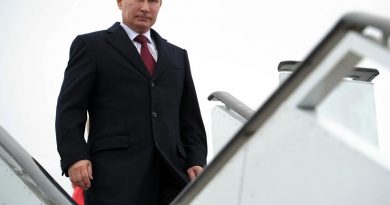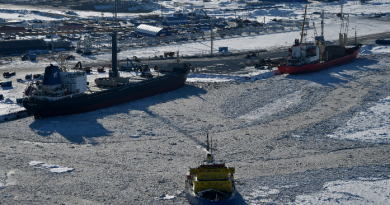Beef up Arctic search and rescue to keep Canada’s North secure, experts argue
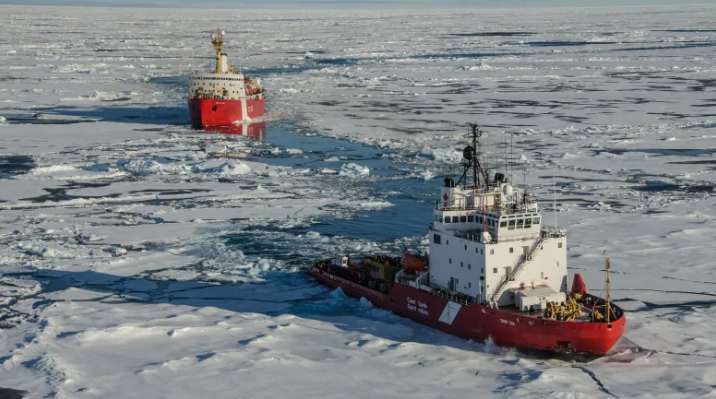
A new paper says search and rescue infrastructure can be used for policing non-state threats in Canada’s North
A leading Arctic expert argues if Canada improves search and rescue capability in the Far North, it will be able to better keep the region secure — without raising alarm in countries like Russia.
Michael Byers, with the University of British Columbia, put forward the proposal in the December 2019 issue of International Journal with colleague Nicole Covey.
In the article, they call for Canada to bolster its search and rescue equipment in the North — like helicopters and Coast Guard icebreakers — for two reasons.
Firstly, Byers says, people in the North deserve services on par with their southern counterparts when there’s an emergency.
But secondly, the equipment used for search and rescue over the air and sea could also be used for security duties — like boarding a cargo ship to investigate human smuggling, or flying out to respond to accusations of illegal fishing in Canadian waters.
Avoiding “security dilemma”
A similar thing is already happening in southern Canada. Coast Guard officials don’t make arrests, but on the Great Lakes and in the Gulf of St. Lawrence, RCMP officers enforce laws on patrol boats with the Coast Guard.
And unlike a navy ship, these non-combat outfits wouldn’t give off the impression to other countries like Russia that Canada is gearing up for a fight.
“The choices that Canada makes actually changes the signals that that Russia receives,” Byers said.
That’s important, Byers notes, because history has shown when a nation’s leadership perceives a threat from another country, it often builds up its own military, leading to a cycle of armament that becomes dangerous and costly on both sides — a phenomenon known as the “security dilemma.”
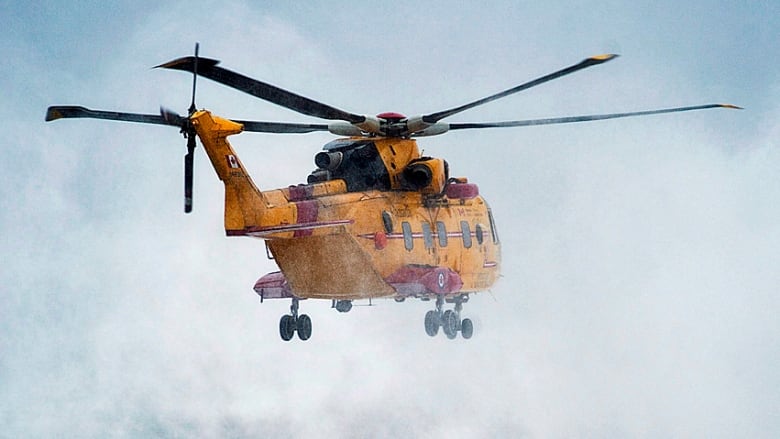
“Russia has lots of Arctic already unquestionably to itself, and doesn’t want to have conflict in the Arctic,” he said. “But the Russians are paranoid.”
Canada’s navy is scheduled to receive six new Arctic offshore patrol ships in the next few years, but Byers says those ships should go to the east and west coasts of Canada instead.
In addition to those ships, the Trudeau government announced just before the October election that they would be building six new Coast Guard icebreakers.
If that promise is fulfilled, Byers says those boats will be able to handle the Arctic, and the offshore patrol ships can be moved south of 60.
Armed ships give Canada more options: ret. colonel
Other Arctic security experts offer mixed views.
The Canadian Forces wasn’t able to answer specific questions before deadline, citing the holiday season.
But retired Canadian Forces Colonel Pierre Leblanc, who still consults on security issues, thinks that sticking to the existing plan — beefing up the military’s northern presence with a handful of naval ships that can also perform search and rescue — gives Canada more tools to handle security in remote regions.
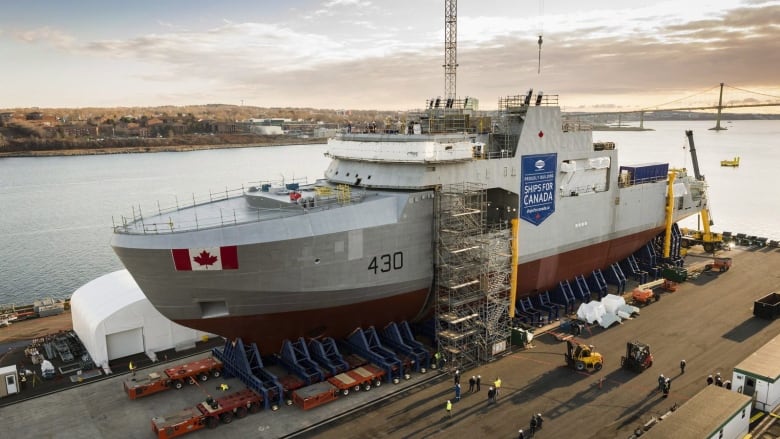
Leblanc agrees that Russia is uninterested in turning the Arctic into a war theatre, pointing to Russia’s participation in the Arctic Council’s 2011 search and rescue agreement and a 2018 Arctic fishing moratorium.
But he says because other countries, including China, don’t agree that the Northwest Passage is an internal Canadian strait, and conflict could come up with another country in the future.
Between Russia’s willingness to collaborate in the North and the continued questions around Canadian sovereignty, Leblanc thinks Russia shouldn’t take a bit more military equipment personally.
“It’s minute compared to the Russian inventory of military capabilities,” Leblanc said.
Russia: neutral in the north?
Rob Huebert, with the University of Calgary, sees things differently. He believes viewing Russia as a “neutral actor” in the region is unrealistic.
Huebert said the Russian military has built up Arctic communities such as Murmansk as central military locations, and has been building new submarines and aircraft. He said Canada should be updating its combat equipment in response.
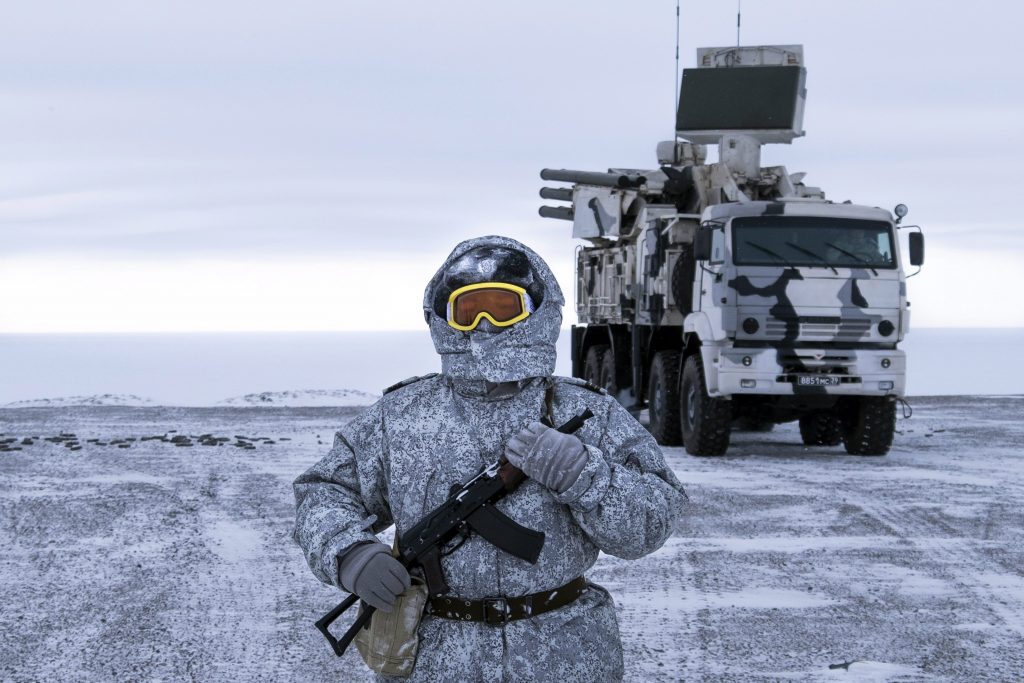
Byers said he’s “not naive about Russia,” but rather, “this is an argument based upon my concern to maintain stability … where no conflict is presently foreseen.”
Huebert says it’s hard to see if he’s right, or Byers and Covey are, because they’re both trying to interpret another country’s intent from afar.
That’s why US Naval War College associate professor Rebecca Pincus says that a bigger presence in the North, through search and rescue tools, could clear up exactly these kinds of knowledge gaps for North Americans — gaps that have lead to confusion and, occasionally, undue fear about what other countries are doing in the North.
“Uncertainty breeds mistrust,” she said.
She also said it could also show other countries that Canada is invested in the region.
“Presence demonstrates resolve…and resolve will signal to other states whether that be Russia or China or others that Canada really cares about this area.”
Related stories from around the North:
Canada: Northerners call for return of Arctic search and rescue roundtable, CBC News
China: It’s official: China releases its first Arctic Policy, Cryopolitics Blog
Finland: Why are we so afraid of China, even in the North?, Yle News
Greenland: Controversy over Greenland airports shows China still unwelcome in the Arctic, Cryopolitics Blog
Iceland: Iceland & UK sign agreement to boost security, defence cooperation, Eye on the Arctic
Norway: Norway rearming in Arctic to face new security landscape, The Independent Barents Observer
Russia: Norway, Russia team up for search and rescue exercise in Barents Sea, The Independent Barents Observer
Sweden: Faced with Trump’s wavering support for NATO, Nordic nations stick together, The Independent Barents Observer
United States: U.S. must pay attention to growing China-Russia alliance in Arctic: expert, Alaska Public Media

